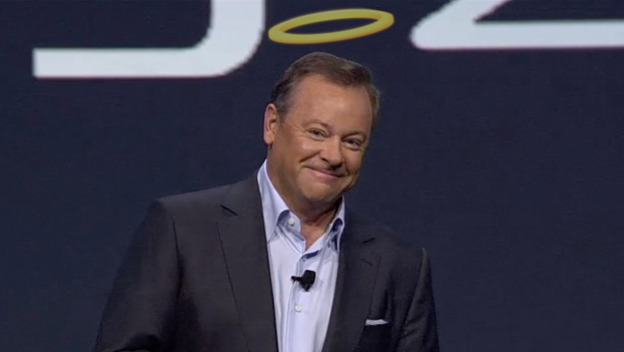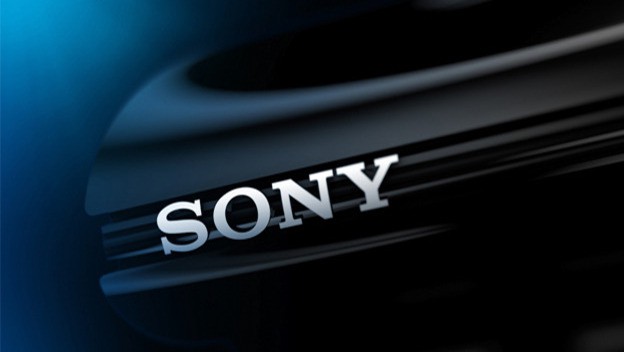Day one of E3 2013 concluded with a decisive press conference from Sony that, beyond announcing over 140 PS4 games and showcasing dozens, struck several crippling blows to Microsoft, who held their own conference just hours before. Sony ruthlessly dismantled Microsoft’s position regarding the most divisive elements of next-gen systems—DRM enforcement, used-game restrictions, and a connection requirement—by responding with a policy of their own. It suffices to say that the PlayStation 4 won’t be having any of it. Jack Tretton himself stood on stage and lined up shots at Microsoft and drove the final stake into their coffin with the PS4’s $399 price tag.
Sony’s conference will go down in E3 history as one of the most successful PR stunts in gaming, but there’s another side to their aggressive approach. Impressively, Sony made use of the momentum and consumer gratification that they had built by thundering away at Microsoft’s policies in order to slip some less flattering news into their disclosure. Specifically, Tretton directly stated that a PlayStation Plus subscription will allow players to “fully immerse themselves in the incredible PS4 games with online multiplayer.” At first glance, this sounds like nothing more than a promotional slogan for PS+. However, details have since surfaced that place a far more literal (and accurate) translation to Tretton’s sugar-coated prose: You have to be a PS+ subscriber in order to play online.
The vast majority of the conference’s viewers—many of whom were directly in front of the stage—completely missed or dismissed this abrupt announcement of a radical multiplayer network change. That’s a bit strange, isn’t it? After all, this is a big deal; Sony has completely turned around on their heretofore unshakable policy of free online functionality for the next generation of gaming. How could something like that possibly fall under the radar?
Because we are sheep, and Sony herded us brilliantly.
Sony’s E3 press conference was a highly anticipated event, and one paired with lofty expectations and demanding questions. What will they do about DRMs? How many games will they have? What does the system look like? How much will the PS4 cost? Questions like these comprise the prevailing mentality of E3 goers and viewers. And, as promised, Sony delivered on all accounts. More than simply deliver, however, Sony intentionally up-played the importance of their answers to topical inquiries and simultaneously downplayed the comparably disparaging news of a now mandatory online subscription.
Jack Tretton did a brilliant job of making Sony appear unassailable—of portraying Sony, and only Sony, as the ultimate and inarguable supporter of gamers. Interestingly enough, this was done systematically, and in a way that catered to and led every gamer watching by the nose.
Things started slow with a round of Vita pushing. Luckily, things quickly picked up speed when the games hit the stage. Then came the jabs at MS. But it was only then that the PS+ online requirement was slipped in under a veritable alias, and Sony quickly followed the announcement with a slew of advantages that the service will offer. A single PlayStation Plus subscription is valid for PS3, PS4, and PS Vita; PS+ members will get free access to Drive Club on day one of the PS4’s release, and free indie titles for months afterward; current PS+ subscriptions will carry over to the PS4—the list of doting statements goes on.
In this, Sony has demonstrated a tried and true PR tactic, often known as “small clausing.” The term is derived from the practice of innocently attaching a small clause of great power onto an otherwise benign proposal that suddenly ratchets up the significance of the would-be law. This new clause is often irrelevant to the bill’s content, and is, more often than not, entirely self-serving for the submitting party.

This exact approach served Sony well at their E3 press conference. By emphasizing their superiority and the grandeur of their game lineup, Sony made something as drastic as the implementation of a pay-to-play network nearly invisible. That it took gamers and analysts longer than ten seconds to realize this is proof that the tactic was successful.
I’m certainly not complaining. After all, the aforementioned benefits that PS+ provides—not to mention the instant game collection—far outweigh the subscription fee. Literally, they’re worth more. In fact, even knowing that PS+ is now all but required, the only people who seem to be complaining are the Microsoft fans who are desperate for something derogatory to latch onto.
